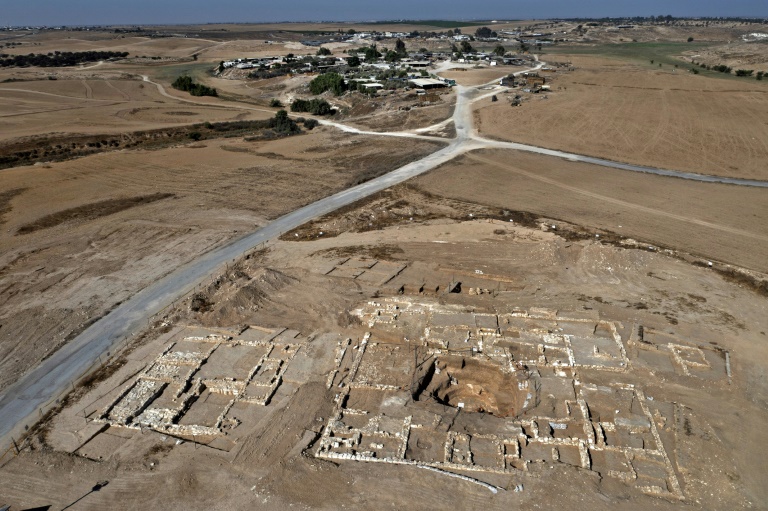An aerial view shows a recently uncovered mansion dating back to the early Islamic period between the eighth and ninth centuries, in the Bedouin town of Rahat in Israel's southern Negev desert
Israeli archaeologists unveiled a 1,200 year-old mansion on Tuesday, broadening knowledge of the southern desert region where a mosque was recently discovered.
Described as a “luxurious rural estate” by the Israel Antiquities Authority, the home boasted a marble-paved hallway and walls decorated with frescoes.
The first building of its kind to be found in the southern Negev desert, according to the IAA, it contained vaulted rooms around a central courtyard.
The remains of oil lamps were unearthed in storage rooms underground, along with a cistern.
“The luxurious estate and the unique impressive underground vaults are evidence of the owners’ means,” said a statement from the archaeologists leading the excavations.
“Their high status and wealth allowed them to build a luxurious mansion that served as a residence and for entertaining,” added Oren Shmueli, Elena Kogan-Zehavi and Noe D. Michael.
“We assume whoever lived here was some local ruler,” Michael told AFP, adding that such estates had been “totally unknown in the Negev until today”.
The site in the Bedouin city of Rahat is due to be opened to the public on Thursday.
The estate is close to a rare mosque dating back to the same period, which Israeli archaeologists unveiled in June.
A few dozens Muslims likely worshipped at the site at one time, the IAA said.
The Muslim conquest of the region occurred in the first half of the seventh century.
“After we finish the excavation (of the mansion), it is planned that this place will be preserved”, alongside other discoveries like the mosque, Michael added.









